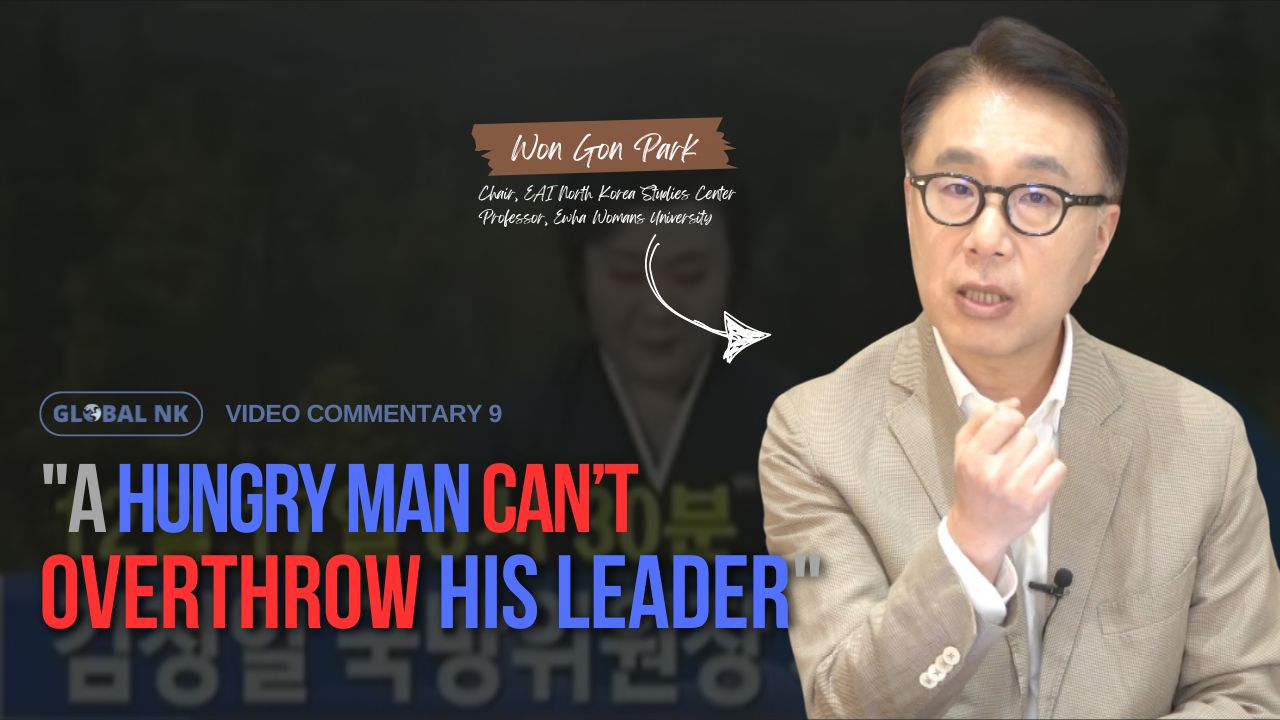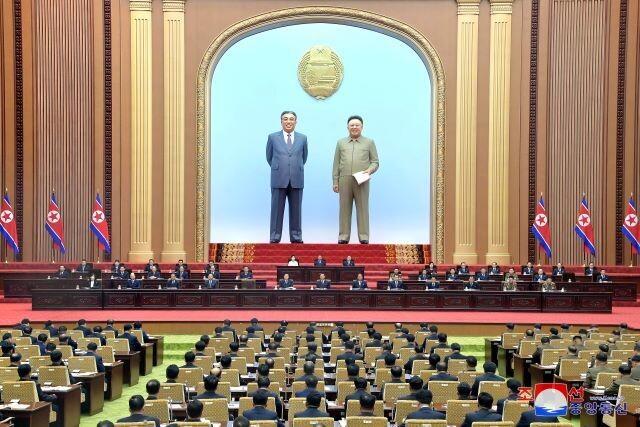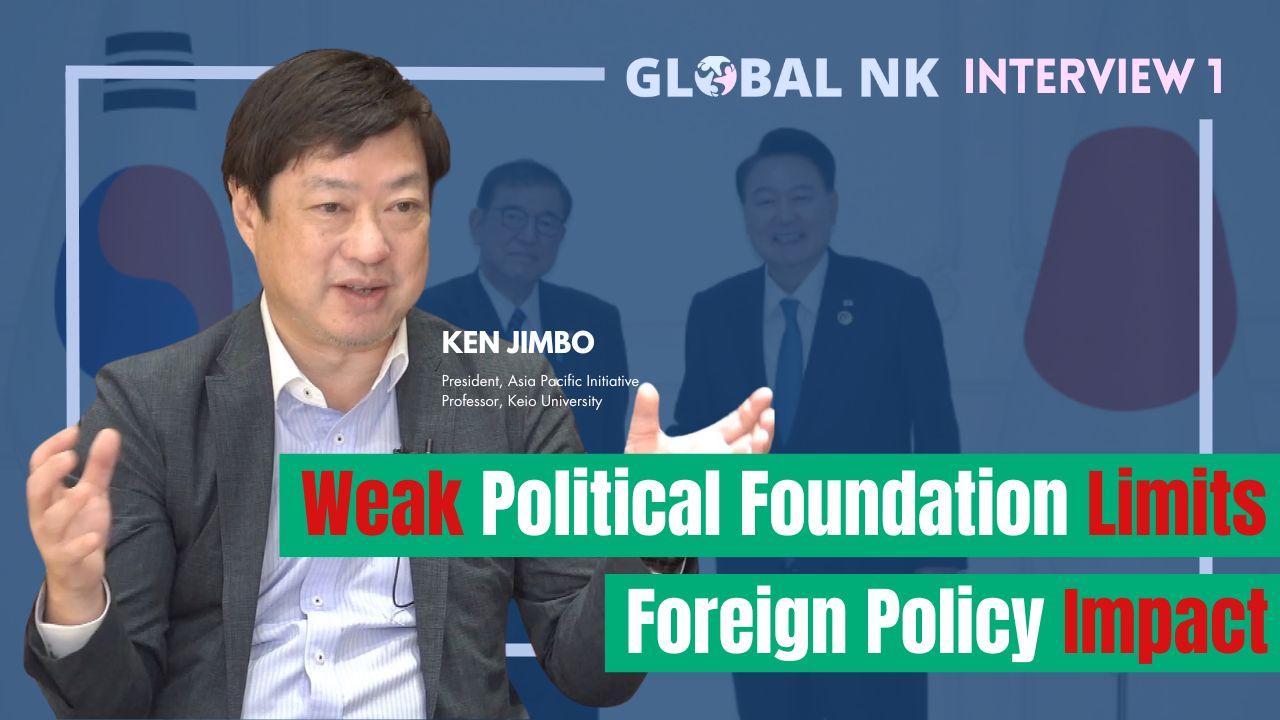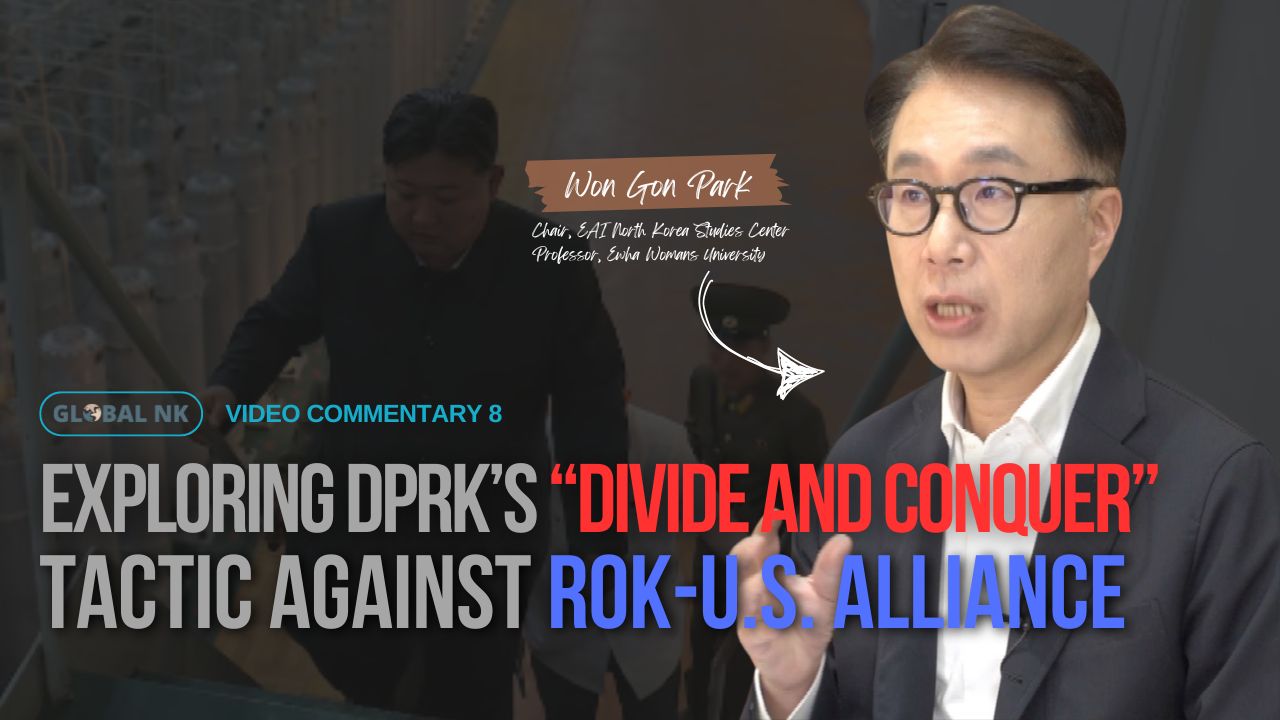Editor’s Note
President Yoon Suk-yeol, who took office on May 10th, faces serious challenges ahead of its term, ranging from North Korea’s provocations to navigating a geopolitical flux between China and the U.S. In this commentary, the Global NK Editorial Board provides policy recommendations for the Yoon administration’s North Korea policy in the areas of the U.S-China strategic competition, ROK-U.S. alliance, ROK-China relations, North Korea’s denuclearization, and economic cooperation between the two Koreas.
Seong-ho Sheen (Professor at the Graduate School of International Studies (GSIS), Seoul National University)
During the 2022 South Korean presidential election, President Yoon Suk-yeol proposed the reconstruction of the ROK-U.S. alliance as a key foreign policy objective. At the same time, Yoon declared a hardline approach towards North Korea’s military provocations, even purporting a preemptive strike if necessary. In response, Kim Jong-un put on a military show-of-force with an intercontinental ballistic missile (ICBM) launch in March and a large-scale military parade in April. President Biden, who held his first ROK-U.S. summit in Washington last year with President Moon, will visit Seoul exactly in a year to meet with newly elected President Yoon for his second summit with South Korea. Japanese media has payed close attention to Biden’s schedule as this will be the first time a sitting U.S. president visited South Korea before Japan on a visit to Asia. Evidently, ROK-U.S. relations are stronger than ever. Previously at the Moon-Biden summit, the two leaders declared a comprehensive partnership in various areas such as the economy, technology, science, health, and climate change that extend far beyond the Korean Peninsula, in order to solve bilateral, regional, and global issues. However, North Korea and its nuclear program will remain as one of the main agenda items at this summit.
Yet, the problem is that Washington now faces much more serious challenges. As the world continues to recover from the COVID-19 pandemic, inflation has weighed down not only individual countries, but also the global economy. Amid unrest in Europe due to the Russia-Ukraine War, Putin has warned the potential of a nuclear war with the U.S. and other Western nations against their expanding intervention. At the same time, economic sanctions on Russia have bred fears of global energy and food shortages. Ahead of the midterm elections in November, the Biden administration faces problems on all domestic fronts as prices of daily necessities soar amid austerity and inflation coupled with intensifying political divides.
Under such circumstances, the worst case scenario on the Korean Peninsula for Biden and the U.S. is another military crisis. Therefore, the Yoon administration must put forward a deliberate North Korea policy. In doing so, it should closely coordinate with Biden on North Korea, considering that the Biden administration has adopted “calibrated and pragmatic approach.” Fortunately, Kwon Young-se, Yoon's Minister of Unification, claimed that the ministry will inherit policies from its predecessor, confirming that there will be continuity. Additionally, there have been reports on the potential of medical assistance in the wake of the COVID-19 outbreak in North Korea. This should be used as a good opportunity to resume the broken inter-Korean and U.S.-DPRK engagement. Peace and stability on the Korean Peninsula benefits not only the two Koreas, but also the U.S. and the ROK-U.S. alliance after all.
Byung-Yeon Kim (Professor of Economics at Seoul National University)
The Yoon Suk-yeol administration should prioritize North Korea’s denuclearization among its policy tasks. To this end, the administration should refrain from viewing the issue from a single perspective based on economic cooperation or sanctions and combine economic cooperation, sanctions, deterrence, and engagement in a sequential manner. In other words, Yoon should prepare and implement a policy mix tailored to the different stages of denuclearization. Seoul should also coordinate with Washington in order to prevent the North Korean agenda from falling behind on Washington’s priority list. In particular, the U.S. needs to properly establish U.S.-China relations on areas concerning North Korea so that China does not thwart the process of North Korea’s denuclearization.
Setting goals for inter-Korean relations and reaching an agreement are also important policy tasks. While previous administrations proposed to unify the Koreas and establish peace, such goals have not been accepted or realized. The new administration aims to accomplish economic integration through economic cooperation following progress in North Korea’s denuclearization agenda. Economic integration opens up opportunities for not only for peace on the Korean Peninsula, but also for the development of the inter-Korean economy. It can also lead to North Korea’s denuclearization by allowing Pyongyang to see the issue of nuclear development from a new perspective.
Dong-Ryul Lee (Professor of Chinese Studies at Dongduk Women’s University)
The Yoon Suk-yeol administration faces a myriad of challenges ahead of its inauguration — North Korea has successively fired missiles amid intensifying U.S.-China competition. There are precedents in which security anxiety precipitated by North Korea expanded into greater conflict and tension between Washington and Beijing, which in turn, stirred instability on the Korean Peninsula. In order to focus on the new vision to build a global pivotal state, the Yoon administration should lay out precise strategies and refrain from being engrossed into the security anxiety of North Korea and the U.S.-China conflict.
If the Yoon administration plans to strengthen the ROK-U.S. alliance in response to Pyongyang’s provocations, it is key take into account China’s role in solving the North Korean nuclear issue. In fact, previous conservative administrations have tried to persuade or pressure China when developing a strategy to coerce North Korea. However, this led to either reliance on China or greater instability on the Korean Peninsula, further straining ROK-China relations.
It is likely for China to reevaluate North Korea’s strategic value, as it has realized the need for allies amid rising tensions between Washington and Beijing. North Korea’s provocations and instability on the Korean Peninsula also poses a security challenge for Xi Jinping as he plans to secure a third term as China’s leader. Beijing fears that North Korea’s provocations may lead to stronger ROK-U.S.-Japan trilateral security cooperation and escalate its conflict with Washington. China stands against pressuring North Korea as it could jeopardize the regime.
Seoul and Beijing have maintained a basic strategic consensus in managing crises and maintaining stability on the Korean Peninsula. Liu Xiaoming, China’s Special Representative for Korean Peninsula affairs, and Wang Qishan, Vice President of State Affairs, conveyed a message to both South and North Korea on managing instability on the Korean Peninsula. The Xi administration must manage external security risks in the face of domestic concerns such as the spread of COVID-19 and economic instability.
The Yoon administration must leave room for strategic communication with China to manage security dilemmas that may emerge from deterring North Korea through the ROK-U.S. alliance. Seoul must secure greater diplomatic leeway and widen its range of strategic options to refrain from falling under crisis in the early days of its rule. The persistence and fortification of the new Cold-War structure of North Korea, China, and Russia vs. South Korea, the U.S., and Japan on the Korean Peninsula will heighten instability and narrow down Yoon’s diplomatic options. The Yoon administration needs to prioritize on securing an external environment, in which it can actualize its diplomatic vision by stably managing the security dilemma. ■
※ This is the second and final publication of the [Global NK Editorial Board Commentary: Policy Recommendations for the Yoon Administration’s North Korea Policy] series.
■ Seong-Ho SHEEN is professor and director of Center for International Security at Graduate School of International Studies at Seoul National University. He advised various government organizations including ROK National Ministry of Defense, Ministry of Foreign Affairs, Ministry of Unification and Committee on Foreign Affairs and Unification, the ROK National Assembly.
■ Byung-Yeon KIM is director of the Institute for Peace and Unification Studies and professor in the Department of Economics at Seoul National University (SNU). He received his B.A. and M.A. from SNU and his D.Phil. from the University of Oxford. His research interests lie in the fields of transition economics and applied econometrics, in particular with reference to North Korea as well as former socialist countries. He has served as a member of various government committees including the National Economic Advisory Council and the Presidential Committee for Unification Preparation, and is a member of the Advisory Committee for the Ministries of Unification and Foreign Affairs. He is a regular columnist for Joongangilbo mostly on North Korean issues.
■ Dong Ryul LEE is professor at the Department of Chinese Studies of the Dongduk Women’s University since 1997. He is now a chair at China Research Panel of East Asia Institute (EAI). He served as the policy advisory committee to the South Korean Ministry of Foreign Affairs and an executive committee member in the Joint Committee of Experts for Korea-China Strategic Cooperative Partnership. He received his Ph.D. in the Department of International Politics, Peking University in 1996. His research area includes Chinese foreign policy, international relations in East Asia, Chinese nationalism and minority.
■ Typeset by Seung Yeon Lee, Research Associate
For inquiries: 02 2277 1683 (ext. 205) | slee@eai.or.kr





